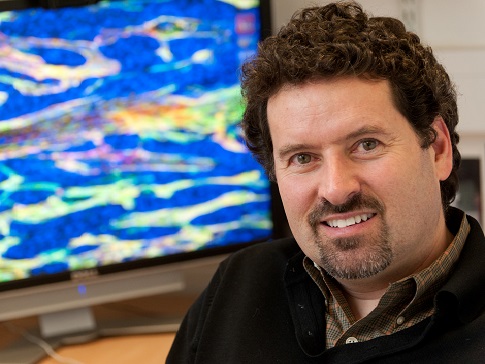It’s a well-established and quite incredible fact that some babies with neuroblastoma, a cancer of childhood, can cure themselves of the disease. Even if their cancer, which usually begins as a tumour in the abdomen, has spread to other parts of the body, children under around a year of age often fight it off without any medical help.
Slightly older children often have a more dangerous form of neuroblastoma, which is usually treated with chemotherapy. There are also a distinct group of children with high-risk, currently untreatable forms driven by particular genetic mutations. But the fact that some babies can cure themselves is a tantalising, frustrating and inspiring reminder that our bodies may already have some of the tools needed to fight cancer. We just don’t know how to turn them on.
This concept underlines immunotherapy, one of the current frontiers in cancer science. The recent announcement of results from early trials of immunotherapies – including two widely publicised trials in patients with melanoma – have shown that using the body’s own weapons could hold the key to defeating some otherwise incurable cancers. Researchers led by Professor Kevin Harrington here at The Institute of Cancer Research in London are even using viruses to help our immune systems to recognise cancers as a threat, and attack them.
‘Natural’ immunotherapy
In a fascinating recent article in Nature Reviews Cancer, the ICR’s Dr Louis Chesler, an expert in neuroblastoma, reviews conditions known as paraneoplasias. These are a wide-ranging group of mysterious illnesses caused by the body’s reaction to cancer. Many, such as a very rare childhood degenerative condition called opsoclonus-myoclonusataxia syndrome (OMS), are caused by the immune system’s response to cancer.
Symptoms of OMS include a loss of proper muscle control. The condition is closely linked to neuroblastoma, and children with symptoms are usually referred for a scan to look for signs of a tumour. Only around half of children with the syndrome are diagnosed with neuroblastoma, however.
As Dr Chesler argues in his review, the symptoms of OMS may be caused by an immune response that often actually cures neuroblastoma. It might be that all, or almost all, cases of OMS are triggered by the cancer, but by the time it comes to a scan the immune response has cleared the body of any sign of tumours in half of patients.

If that’s the case, OMS would be an example of a ‘natural’ immunotherapy, and could lie on a spectrum of natural immune responses that somehow cure a proportion of very young children of even advanced forms of neuroblastoma.
OMS itself would represent an exasperating example of ‘self-immunotherapy’, because although the cancer often disappears the immune response is so extreme that affected children usually have a progressive and disabling degeneration of nervous tissue. But the fact that some babies can cure themselves of cancer is a reminder of the close relationship between cancer and the immune system, and gives hope that new immunotherapy treatments will ultimately save many lives.
comments powered by